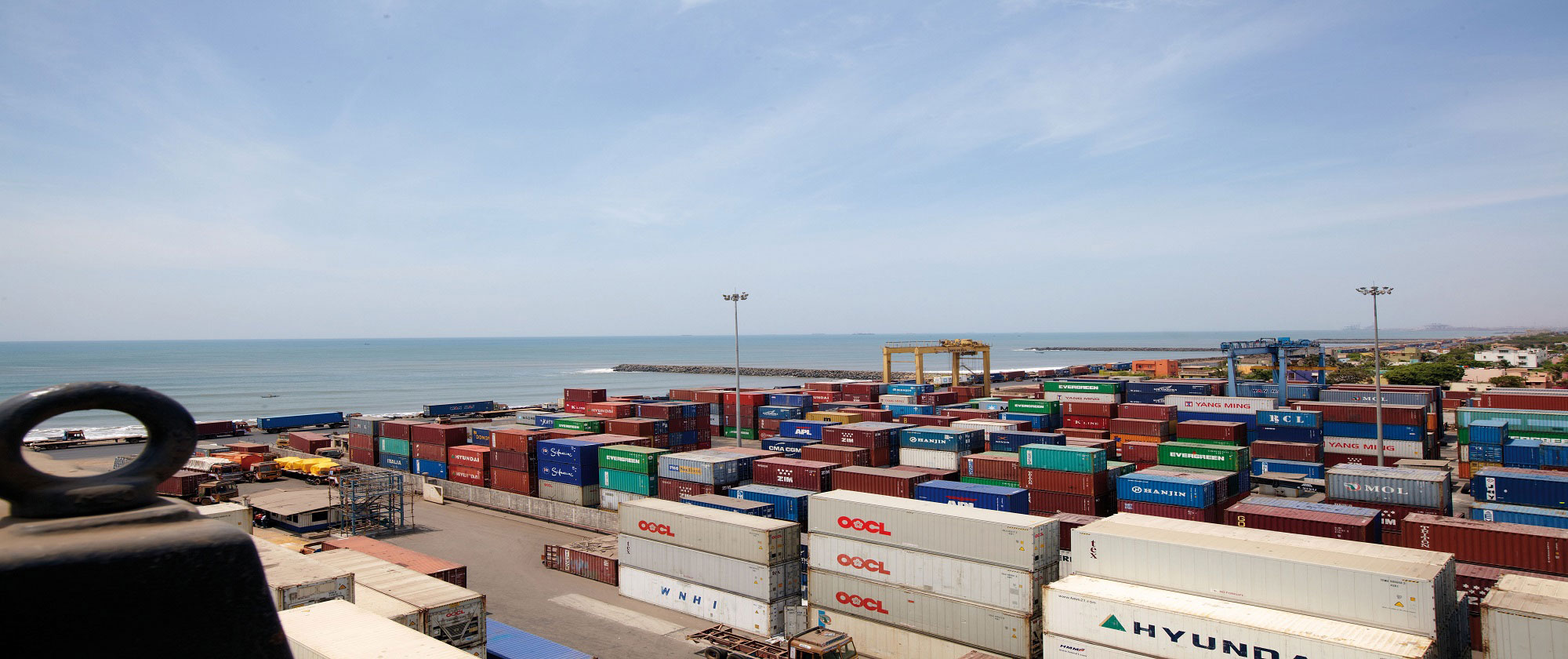A transhipment hub is basically where international shipments (imports from across the world) are de-consolidated and then re-consolidated to be sent across to their destinations around the world.
A transhipment hub is basically where international shipments (imports from across the world) are de-consolidated and then re-consolidated to be sent across to their destinations around the world. For example, if someone wants to send cargo from one international destination to multiple others, they can send it in a single container to our transhipment hubs in Chennai or Mumbai, where we will de-consolidate it and then re-consolidate as per the destinations where it needs to be sent.
Chennai and Mumbai calling
Allcargo Logistics has transhipment hubs in Mumbai (JNPT) and Chennai. It is the only logistics service provider that offers reliable transhipment services spanning India’s East and West coasts.
With Container Freight Station (CFS) at Nhava Sheva, Mumbai, handling maximum volumes, it is an ideal location for transhipment. With a team of expert professionals adept at completing all the formalities, customers are assured of hassle-free cargo transportation to their desired location.
Chennai Port is India’s second largest port and the southern gateway for India’s ocean trade. Allcargo’s CFS in Chennai plays a significant role in enabling cargo movement, both domestic and international. This CFS operates an international transhipment hub catering to customers worldwide. The hub is also used by importers who wish to take advantage of the shorter transit times. In India, customers who source their cargo from the Far East to destinations in the northern hinterland such as Delhi NCR, prefer to route time-sensitive cargo through Chennai because transit time reduces by as much as five days compared to say, Nhava Sheva in Mumbai or Mundra in Gujarat.
Thanks to this transhipment capability and an uninterrupted customs clearance process, the Chennai CFS runs 24×7 and serves as a perfect gateway to South Asian markets.
Allcargo’s transhipment services at Chennai and Mumbai are ideal for businesses that want to leverage India as a transhipment destination for their Exim cargo.
Power of global network
Through its 100% owned global subsidiary, Allcargo operates through a worldwide network of over 300 offices in more than 160 countries. The experience and expertise that makes it the world’s LCL consolidation leader also makes transhipment operation efficient, timely and convenient.
As transhipment involves Exim cargo, there are numerous documentation formalities, safety and security protocol standards, as well as sailing schedules that need to be considered at the origin, transhipment hub as well as destination of the cargo. As India is on the course of improving ease of doing business and emerging as a global trade destination, Allcargo’s transhipment hubs in Mumbai and Chennai are perfect gateways for transhipment cargo.
As transhipment services are offered on behalf of the customs authority, complete care has to be taken to ensure appropriate collecting of duty, making sure there is no misdeclaration of goods, etc.
Owing to a global presence backed by local expertise at various locations, Allcargo is well-equipped to help customers navigate through the documentation and other processes for import cargo. It is the only player to offer transhipment services at Mumbai and Chennai for cargo from anywhere and to anywhere worldwide.
“Our transhipment capabilities have grown sharply over the past couple of years, thanks to our end-to-end capabilities coupled with favourable regulatory changes,” says Hareram TS, Senior Vice President – NVOCC Indian subcontinent, Allcargo Logistics. “We believe India and Allcargo now have the momentum to become world-beating transhipment destinations,” he continues.
Looking ahead
Future growth in transhipment is likely to be in proportion to the growth of global container traffic, but which factors could further increase the scale of transhipment? One important issue relates to the ongoing introduction of larger container ships calling fewer ports which is inciting a greater reliance on transhipment. With these mega-ships able to call only on a limited set of ports, reaching their cargo to a final destination will require the use of transhipment services.














